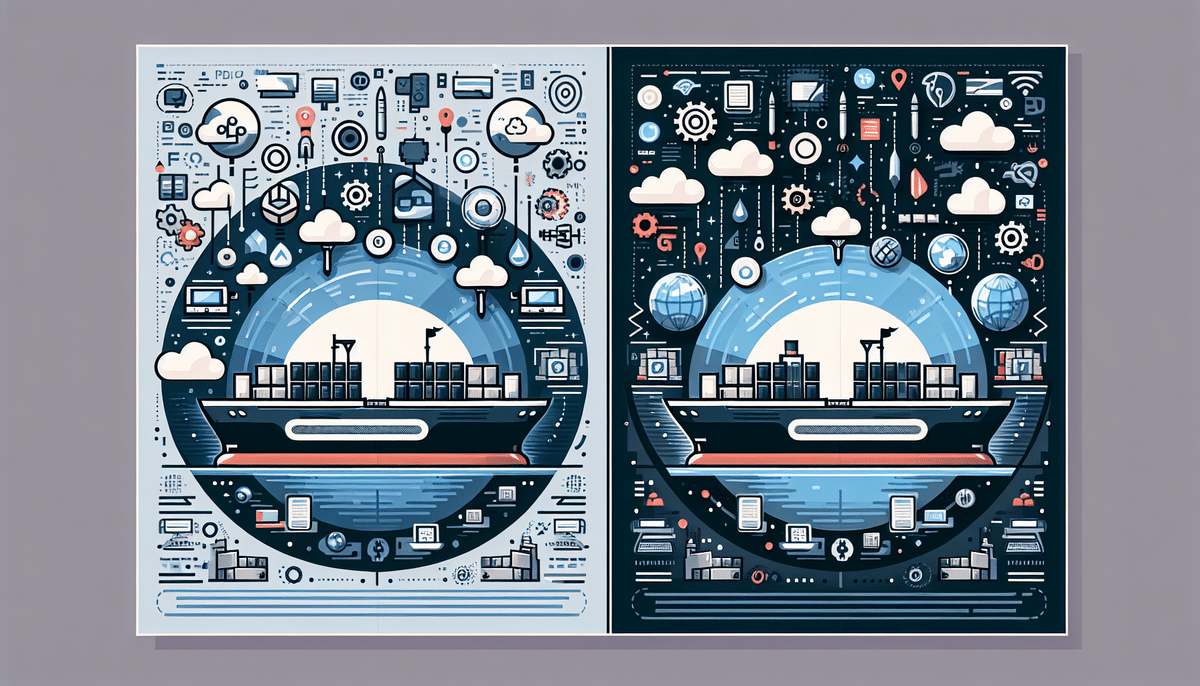Introduction
For small businesses seeking efficient inventory logistics solutions, Fulfillment by Amazon (FBA) and ShipMonk emerge as two prominent options. Both services streamline order fulfillment, but each has distinct advantages and drawbacks. This comprehensive comparison will help you determine which fulfillment service aligns best with your business needs.
Overview of Fulfillment by Amazon (FBA) and ShipMonk
Fulfillment by Amazon (FBA) is a service offered by Amazon that manages the entire order fulfillment process for sellers. This encompasses inventory storage, order processing, shipping, customer service, and handling returns. On the other hand, ShipMonk is a third-party logistics provider that offers similar services tailored to e-commerce businesses across various platforms.
While both FBA and ShipMonk aim to simplify logistics for sellers, they cater to different business models and operational preferences. Understanding their core functionalities is crucial for making an informed decision.
How FBA and ShipMonk Work
Fulfillment by Amazon (FBA)
With FBA, sellers send their inventory to Amazon’s fulfillment centers. When a customer places an order, Amazon handles picking, packing, shipping, and provides customer service, including returns. FBA integrates seamlessly with Amazon’s marketplace, offering benefits like Amazon Prime eligibility, which can enhance product visibility and sales.
ShipMonk
ShipMonk operates similarly by storing inventory in its warehouses. When an order is placed, ShipMonk takes care of picking, packing, and shipping the product. Additionally, ShipMonk offers advanced features such as real-time inventory tracking, customizable packaging, and integration with multiple e-commerce platforms like Shopify and WooCommerce.
Pros and Cons
Fulfillment by Amazon (FBA)
- Pros:
- Access to Amazon’s vast customer base
- Eligibility for Amazon Prime and its fast shipping
- Simplified returns and customer service handling
- Improved product visibility through the Buy Box
- Cons:
- Higher fees, including storage and fulfillment costs
- Limited to selling on Amazon’s platform
- Less control over branding and packaging
- Increased competition within Amazon’s marketplace
ShipMonk
- Pros:
- Greater control over branding with customizable packaging
- Ability to sell across multiple e-commerce platforms
- Potentially lower costs for certain business models
- Advanced inventory management and real-time tracking
- Cons:
- Smaller customer base compared to Amazon
- Potentially slower shipping options
- Limited international shipping capabilities
- Customer support availability may be less extensive
Cost Comparison
Understanding the cost structure of each fulfillment service is pivotal for budgeting and profitability.
Fulfillment by Amazon (FBA)
FBA fees are primarily composed of:
- Fulfillment Fees: Charged per unit based on size and weight.
- Storage Fees: Monthly fees based on the volume of inventory stored.
- Additional Fees: Long-term storage fees for items stored over 365 days, removal fees, and labeling fees.
For detailed fee structures, refer to Amazon’s official FBA fee schedule.
ShipMonk
ShipMonk offers a more flexible pricing model:
- Setup Fees: One-time fees for account setup and integration.
- Monthly Fees: Based on storage space and the number of orders processed.
- Per Order Fees: Charged for picking, packing, and shipping each order.
ShipMonk provides customized pricing plans tailored to individual business needs. For more information, visit their pricing page.
Services and Features
Fulfillment by Amazon (FBA)
- Inventory storage across Amazon’s global fulfillment centers
- Order processing and shipping through Amazon’s logistics network
- Customer service and returns management handled by Amazon
- Access to Amazon Prime members
ShipMonk
- Inventory storage in multiple U.S. warehouses
- Order fulfillment with customizable packaging options
- Advanced inventory management and real-time tracking
- Kitting and assembly services
- Integration with multiple e-commerce platforms
Customer Support and Return Handling
Fulfillment by Amazon (FBA)
FBA provides 24/7 customer support, handling inquiries related to orders, shipping, and returns. This support is particularly beneficial for sellers who prioritize customer satisfaction but may not have the resources to manage support independently.
ShipMonk
ShipMonk offers customer support during standard business hours, with a focus on personalized service. Their team assists with inventory management, order fulfillment, and returns, providing a more hands-on approach compared to FBA.
When it comes to returns, FBA follows a standardized process with associated fees, whereas ShipMonk allows sellers greater flexibility in managing returns, including restocking, disposal, or returning to the customer without additional charges.
Conclusion: Choosing the Best Fulfillment Service
The decision between Fulfillment by Amazon (FBA) and ShipMonk hinges on your business’s specific needs and priorities:
- Choose FBA if:
- You primarily sell on Amazon and want to leverage Amazon’s extensive customer base
- You benefit from Amazon Prime’s fast shipping options
- You prefer Amazon handling customer service and returns
- Choose ShipMonk if:
- You're selling across multiple e-commerce platforms
- You desire greater control over branding and packaging
- You require advanced inventory management and real-time tracking
- You want more flexible and personalized return handling
Ultimately, both FBA and ShipMonk offer robust fulfillment solutions, but aligning their strengths with your business model will ensure optimal efficiency and customer satisfaction. For a detailed analysis tailored to your specific circumstances, consider consulting with a logistics expert or utilizing financial modeling tools.




















